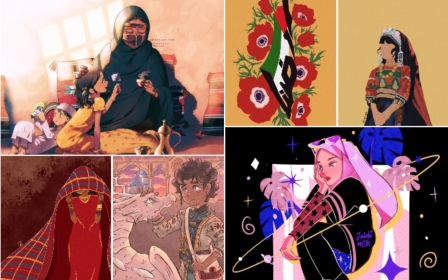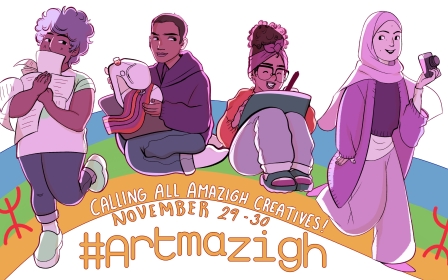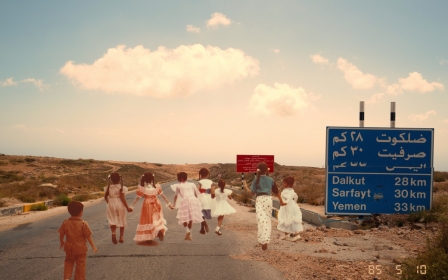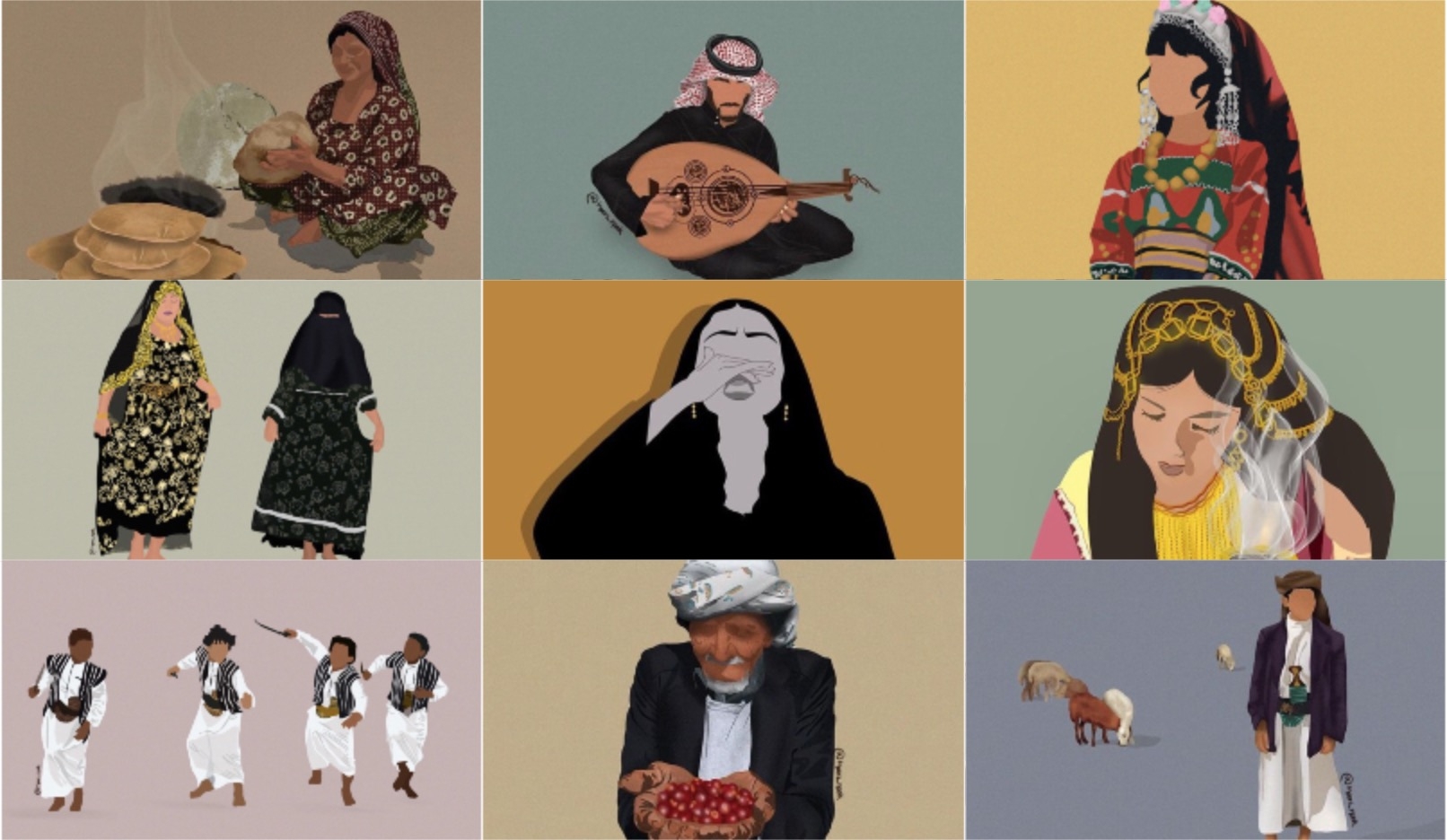
In pictures: The Yemeni-American artist reconnecting with her homeland
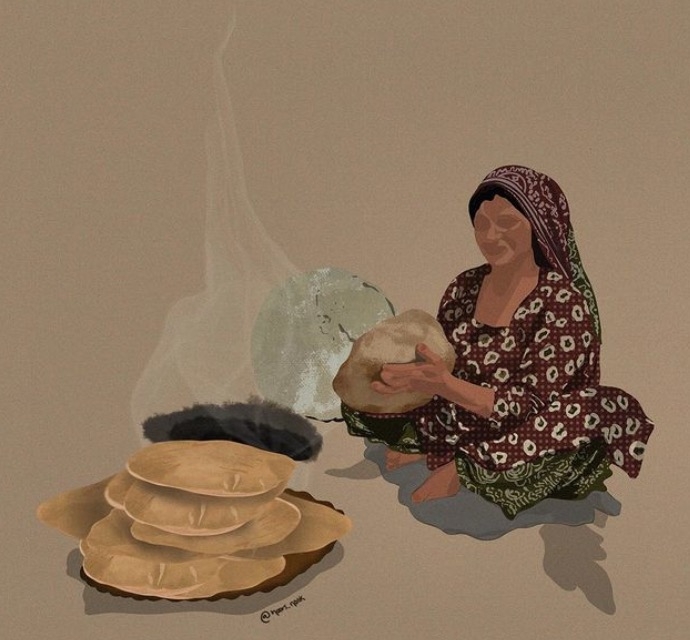
For Noor Qwfan, her illustrations are more than just a creative outlet, they are also a way for her to remember her life in Yemen, connect with her culture and showcase it to the world.
Qwfan was born in Juban, in northern Yemen, and migrated to California in the US with her family when she was two, returning to visit annually for many years after. When the war broke out in Yemen in 2015, trips back home ended, and her illustrations offered a way for to hold onto her culture and celebrate it.
She regularly shares her artwork online, where she has amassed thousands of followers. This art ranges from depictions of traditional Yemeni clothing to political messages and activism.
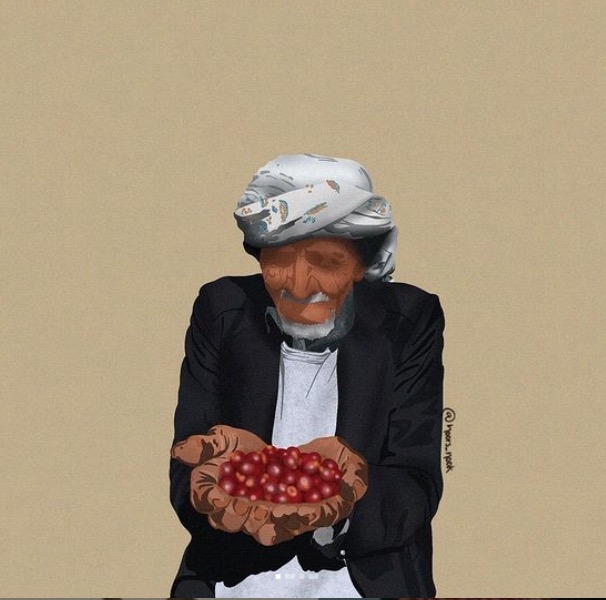
At a time where family visits and holidays to Yemen have been disrupted due to the ongoing war and humanitarian crisis, Qwfan has found art to be a way for her to reflect on the time she spent there on family visits.
“When I am creating, it’s an entire experience where memories of my time there come rushing back, and there are parts of it I remember so beautifully that I am desperate to share them with the world,” she says.
For Qwfan, 29, the illustrations she shares are important because she believes they show a side to Yemen and its culture that many people might not be aware of.
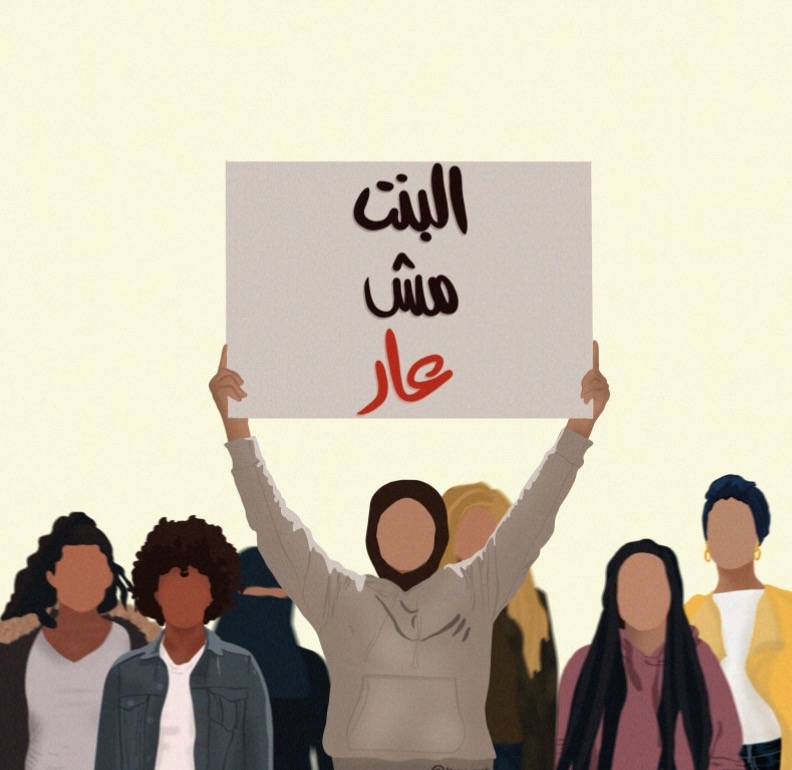
Through her art Qwfan shares messages, which she believes are important in raising awareness of the experiences of Muslims and women.
In one of the illustrations, a group of women can be seen standing together, with one of them holding a poster that says "women are not shame" in Arabic.
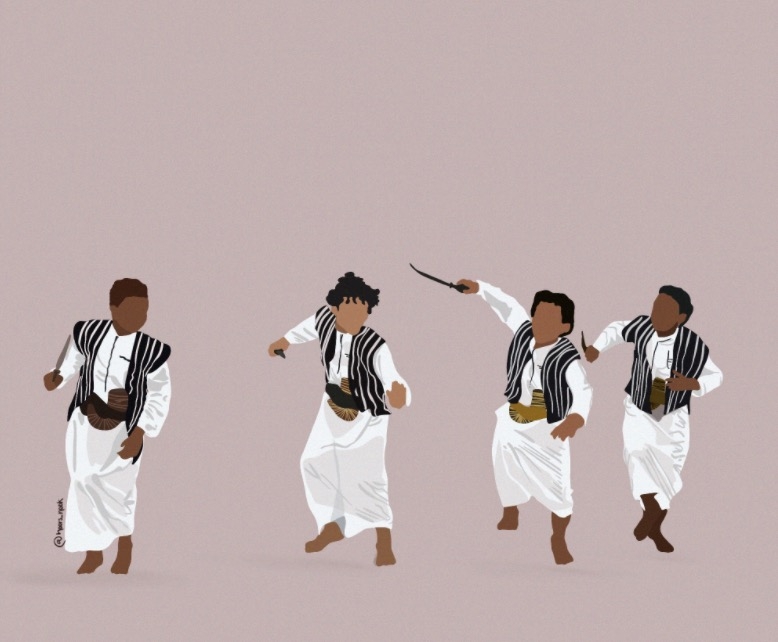
Qwfan uses a range of techniques to illustrate her designs, although it is mainly digital.
“I studied mixed media in undergraduate so I paint with oil and acrylic, draw with coloured pencils and charcoal and also do photography and videography,” she says.
Her favourite illustrations show Yemen’s traditional dance. “A few of my pieces depict people dancing, and I really love those because it’s still of a celebratory moment, which I think is special in a time like now where Yemen is suffering a lot. As much as I want to raise awareness about what is happening there, I still want to have hope that a time like that can exist again.”
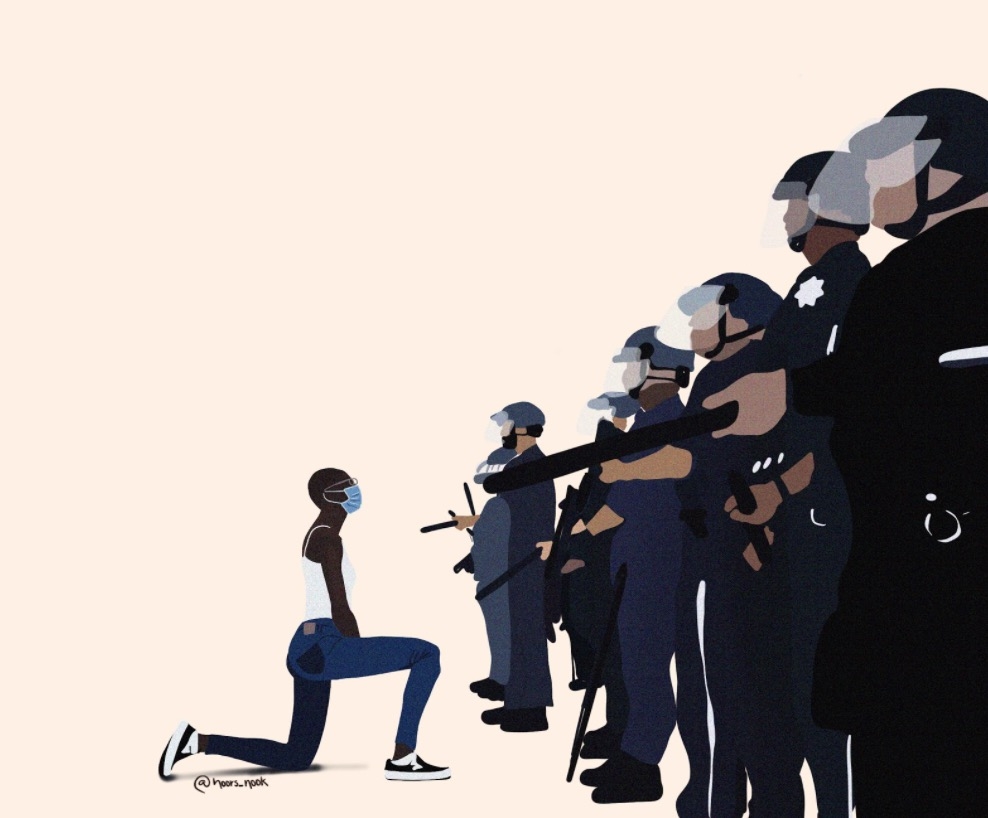
Qwfan’s work also delves into politics, showing standout moments from the Black Lives Matter protests that started in the US in May, and swept across the world.
One of her illustrations shows a protester kneeling in front of armed police, an action the artist found powerful and felt compelled to document.
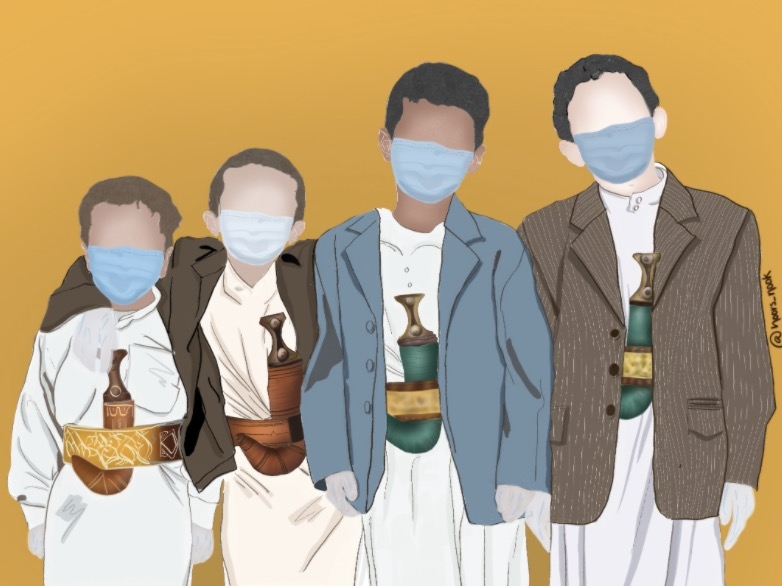
Many of her illustrations merge contemporary themes with traditional Yemeni culture.
This piece shows a group of young Yemeni boys wearing traditional clothing and a janbiya, a special kind of dagger that sits in an embroidered waist belt, coupled with gloves and protective masks as measures against Covid-19.
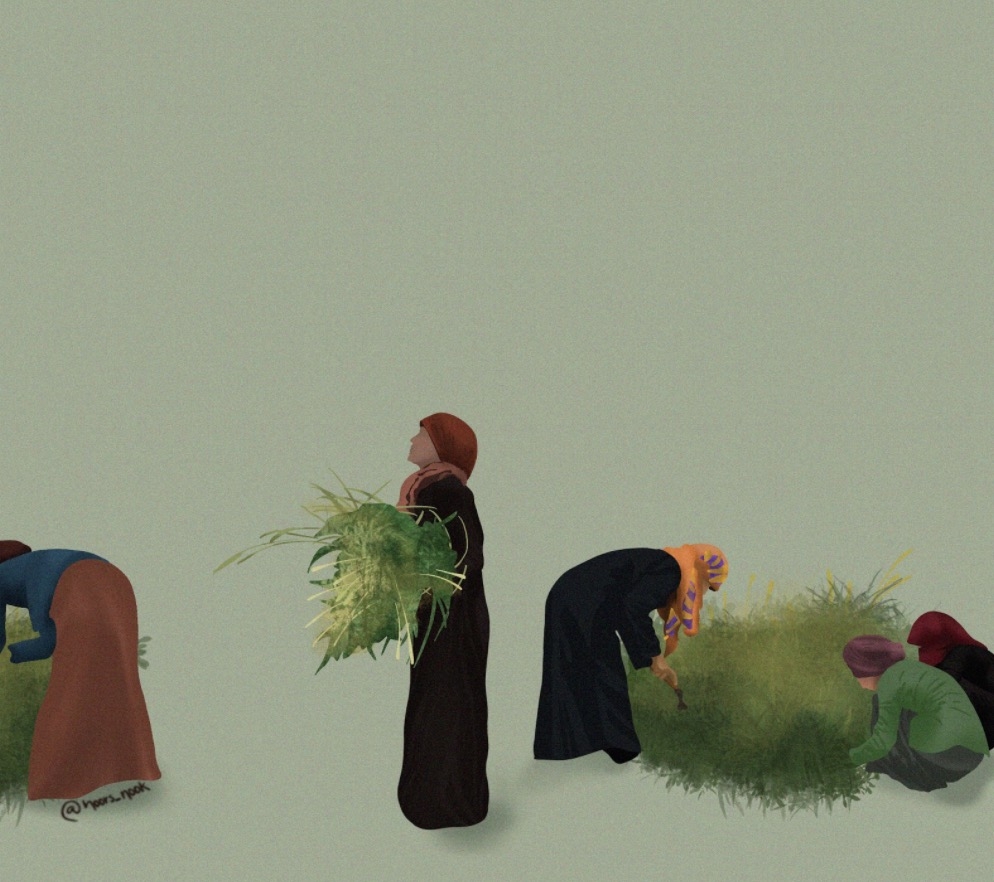
Qwfan intends for her work to reach a wide audience in order to challenge the stereotypes of Yemen often found in the media, in which the country is characterised simply as being war-torn and undeveloped. Her work also sheds light on issues related to women, often depicting them in empowering ways.
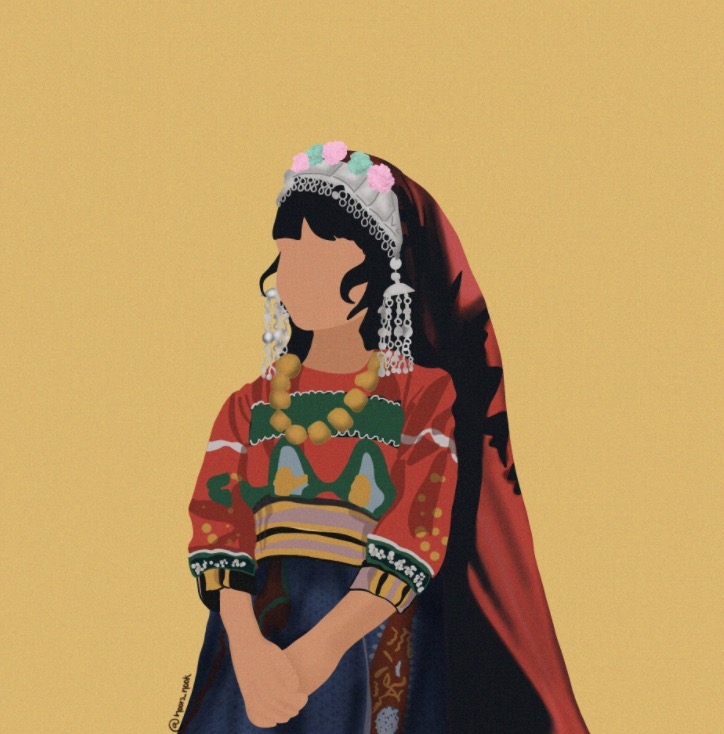
After beginning her journey in illustrations, Qwfan decided to start The Muslim Girl Podcast in 2017, to further elevate and project the voices of Muslim women.
“I wanted to talk about the things that sometimes women discuss behind closed doors, or amongst each other, because I felt that part of the reason why we have issues within our communities is because we don’t talk about our grievances.”
The podcast discusses everything from how men can be better allies to Muslim women to stigmas around mental health.
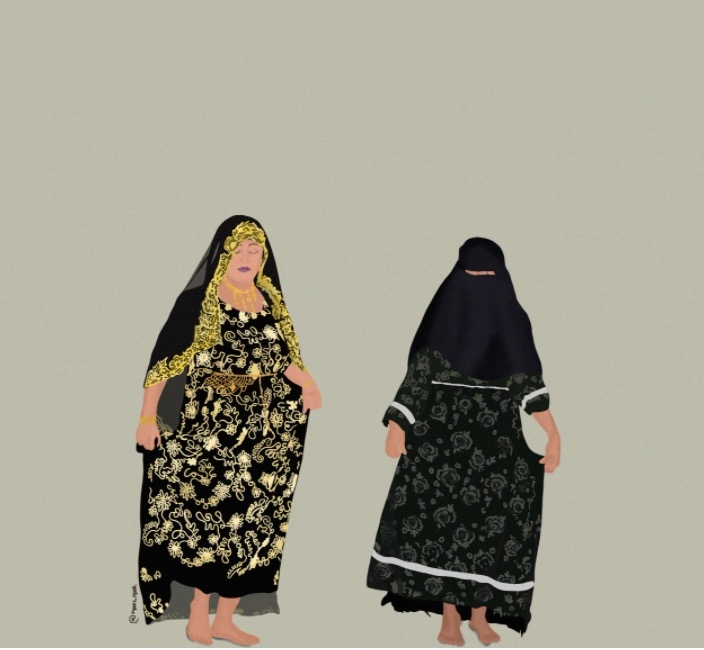
Candid conversations about wearing hijab, graduating from university, sexual assault and even hair loss, all feature on Qwfan’s podcast.
She says: “I knew I wanted to create a safe space for these discussions on a platform that allowed for the most anonymity, in case it was desired… I also wanted to celebrate the successes of Muslim women by allowing them to share their experiences, so that younger Muslim girls can have women to look up and relate to.”
Middle East Eye delivers independent and unrivalled coverage and analysis of the Middle East, North Africa and beyond. To learn more about republishing this content and the associated fees, please fill out this form. More about MEE can be found here.


